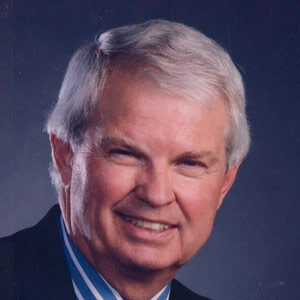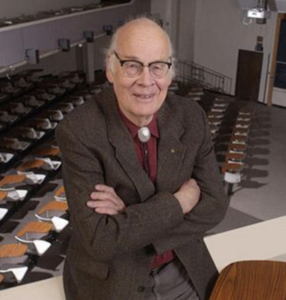is Scientific Director for the NumbersUSA Education & Research Foundation and Vice-President of Scientists and Environmentalists for Population Stabilization. Leon is a national environmental/natural resources planner and a former planner with the Orange County (CA) Environmental Management Agency. He has a B.S. in forestry and wildlife management from Virginia Tech and an M.S. in environmental planning from the University of British Columbia. He has worked as an environmental professional for more than three decades in three countries and more than 40 states, including stints with the U.S. Fish and Wildlife Service, National Marine Fisheries Service, Alaska Department of Environmental Conservation, Alaska Department of Fish and Game, University of Washington, University of New Mexico, and as a Peace Corps Volunteer promoting natural resources conservation in Honduras. He has written or edited more than 400 articles, blog posts, reports, conservation plans, and environmental impact statements, and is the author of Where Salmon Come to Die: An Autumn on Alaska’s Raincoast (Pruett, 1993) and a contributor to Life on the Brink: Environmentalists Confront Overpopulation (University of Georgia Press, 2012) and Environment and Society: A Reader (New York University Press, 2017). He has co-authored more than ten NumbersUSA studies on sprawl in the past two decades.
is Founder of NumbersUSA and its CEO from 1996 to 2022. He was one of the first environment-beat newspaper reporters in the 1960s. A graduate of the University of Missouri School of Journalism, he won national awards for his coverage of urban expansion issues, including honors from the U.S. Environmental Protection Agency and the Izaak Walton League. A former Washington correspondent for Newhouse Newspapers, he is the author of five public policy books, including his most recent work – Back of the Hiring Line: A 200-Year History of Immigration Surges, Employer Bias, and Depression of Black Wealth. His articles have appeared in scores of magazines, newspapers and journals, including the Atlantic Monthly, the Journal of Policy History and the Encyclopedia Britannica’s Annals of America. He has lectured widely on the ethical aspects of U.S. population issues and testified before Congress on many occasions. He founded NumbersUSA in 1996 to educate the American public on the recommendations of two federal commissions on sustainability and economic justice. He has co-authored more than ten NumbersUSA studies on sprawl in the past two decades.
is the director of research of NumbersUSA Education & Research Foundation. He attended Virginia Commonwealth University and the University of Maryland, College Park and has an M.S. in modern European history. He has worked as a researcher on U.S. immigration policy since 2008 and has written extensively on the effects of population growth. His work has been cited in national and international media reports.

“Public policy and most of our institutions, as presently structured, assume boundless resources and no ecological limits. As a nation, we confidently proclaim that there are no limits that cannot be overcome, and around the world, endless growth also seems an assumption beyond challenge. It will be hard to change our thinking, but we must because we are bumping up against the reality of ecological limits. Nature has a different set of rules, and the larger ecosystem is totally indifferent to human moral codes.”
— Richard D. Lamm, “Confronting Finitude”
in
Life on the Brink: Environmentalists Confront Overpopulation
(University of Georgia Press, 2012)
“Can you think of any problem in any area of human endeavor on any scale, from microscopic to global, whose long-term solution is in any demonstrable way aided, assisted, or advanced by further increases in population, locally, nationally, or globally?”
— Albert A. Bartlett’s “population challenge”
